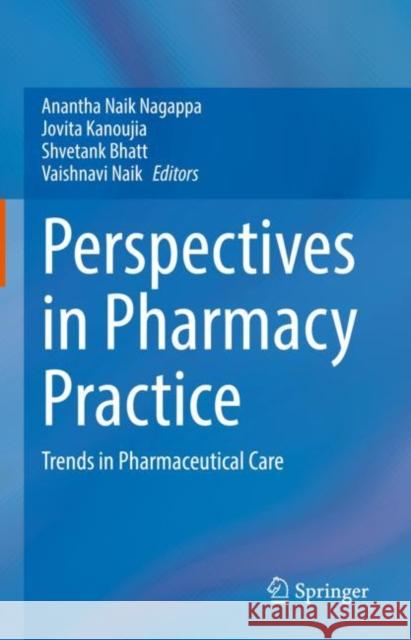Perspectives in Pharmacy Practice: Trends in Pharmaceutical Care » książka



Perspectives in Pharmacy Practice: Trends in Pharmaceutical Care
ISBN-13: 9789811692123 / Angielski / Twarda / 2022 / 354 str.
Perspectives in Pharmacy Practice: Trends in Pharmaceutical Care
ISBN-13: 9789811692123 / Angielski / Twarda / 2022 / 354 str.
(netto: 881,78 VAT: 5%)
Najniższa cena z 30 dni: 848,19
ok. 22 dni roboczych.
Darmowa dostawa!
Professor Anantha Naik Nagappa is currently working in the capacity of Director at Amity Institute of Pharmacy, Amity University Madhya Pradesh, Gwalior, India. He is backed by over 39 years of experience in Pharmacy and has held various prestigious positions in the area of Pharmacy. He specializes in the areas of Clinical Pharmacy, Pharmacology, Pharmacy Practice and Social Pharmacy. Dr. Nagappa has written 3 books, contributed over 50 book chapters and has more than 150 peer-reviewed publications in reputed journals to his credit. He has completed 5 research projects funded by the government and pharmaceutical industry, and is the recipient of many prestigious awards. He serves on the Editorial Board of various National and International journals, and as a reviewer for various International journals as well.
Dr. Jovita Kanoujia is currently serving as an Assistant Professor of Pharmaceutics at Amity Institute of Pharmacy, Amity University Madhya Pradesh, Gwalior, India. Dr. Kanoujia received her Ph.D with the specialization in Pharmaceutical Sciences from Babasaheb Bhimrao Ambedkar University (A Central University), Lucknow, India with high research output in the area of novel drug delivery system. She has published several research papers in national and international high impact peer-reviewed journals, three book chapters with internationally renowned publishers.
Dr. Shvetank Bhatt has done M. Pharm in Pharmacology from Manipal College of Pharmaceutical Sciences, MAHE, Manipal, Karnataka in 2006 and Ph.D. in Neuropharmacology from Birla Institute of Technology & Science (BITS) Pilani, Pilani Campus, Rajasthan. He is currently working as a Professor in Amity Institute of Pharmacy, Amity University Madhya Pardesh (AUMP), Gwalior. He has total 15 years of industrial and academic research experience. He is recipient of Prof. Duggirala Visweswaram & Prof. Sreemantalu Satyanarayana Award. He has published more than 65 papers in various journals of national and international repute.
Dr Vaishnavi Naik, has done Pharm. D from Manipal University, Manipal Karnataka. She has worked as Assistant Professor in Department of Pharmacy Practice of Dayanand Sagar University Bangalore. She is having work experience as drug safety associate in Bioclinica, Mysore. She is recipient of ACPE travel grant and ISPOR Dublin travel grant. She had done FIP Pharmabridge programme in community pharmacy. She has published research articles reviews, case studies and book chapters.
This comprehensive text provides information on fundamental principles of clinical practice and how these can be implemented to provide excellent treatment to the patients. The triads of health care delivery include Physicians, Pharmacist and Nurses that have distinct roles and responsibilities of patient care. Effective pharmacy practice requires an understanding of the social context within which pharmacy is practiced, recognizing the particular needs and circumstances of the users of pharmaceutical services and of pharmacy's place within health service provision. This book presents a contemporary view of pharmacy practice research covering theories, methodologies, models and techniques that are applicable. The initial chapters describe the basics of pharmacy profession and what is the key role and responsibilities of Pharmacist in health care delivery. The central part of the book illustrates the community, hospital and ethics regarding drug formulation. The last chapters cover the therapeutic aspect of pharmacy and how these can be employed to improve patient’s health care facilities.
1997-2026 DolnySlask.com Agencja Internetowa
KrainaKsiazek.PL - Księgarnia Internetowa









